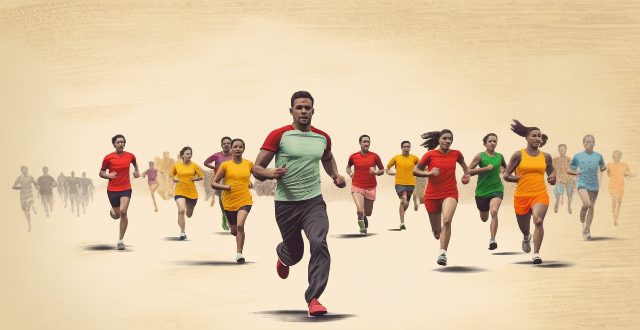Coaches and trainers play a crucial role in promoting sports among disabled individuals by designing training programs, providing guidance and support, creating an encouraging environment, and advocating for accessibility.

The Role of Coaches and Trainers in Promoting Sports Among Disabled Individuals
Coaches and trainers play a crucial role in promoting sports among disabled individuals. They are responsible for designing training programs, providing guidance and support, and creating an environment that encourages participation and success. In this article, we will explore the various ways coaches and trainers contribute to the promotion of sports among disabled individuals.
1. Designing Training Programs
One of the primary responsibilities of coaches and trainers is to design training programs that cater to the needs and abilities of disabled athletes. These programs should be tailored to their specific disabilities, taking into account any limitations or restrictions they may have. For example, a coach working with a visually impaired athlete may need to modify their training program to include more tactile cues and verbal instructions.
2. Providing Guidance and Support
Coaches and trainers also provide guidance and support to disabled athletes throughout their training process. This includes offering feedback on their performance, helping them set realistic goals, and encouraging them to push beyond their perceived limitations. By providing this support, coaches and trainers help build confidence and self-esteem in disabled athletes, which can lead to increased participation and success in sports.
3. Creating an Encouraging Environment
Another important aspect of promoting sports among disabled individuals is creating an environment that fosters participation and success. Coaches and trainers can achieve this by:
* Promoting Inclusivity: Coaches and trainers should strive to create an inclusive environment where all athletes, regardless of their abilities or disabilities, feel welcome and valued.
* Encouraging Teamwork: Promoting teamwork among athletes can help create a sense of community and belonging, which can further encourage participation in sports.
* Focusing on Fun: While competition is an inherent part of sports, it's essential not to forget the fun aspect of participating in physical activities. Coaches and trainers should make sure that their training programs are enjoyable and engaging for all athletes involved.
4. Advocating for Accessibility
Finally, coaches and trainers play a vital role in advocating for accessibility in sports facilities and events. This includes ensuring that venues are wheelchair accessible, providing sign language interpreters for deaf athletes, and making accommodations for other disabilities as needed. By doing so, coaches and trainers help remove barriers to participation and ensure that all athletes have equal opportunities to succeed in sports.
In conclusion, coaches and trainers play a significant role in promoting sports among disabled individuals by designing appropriate training programs, providing guidance and support, creating an encouraging environment, and advocating for accessibility. By fulfilling these responsibilities, coaches and trainers help ensure that disabled athletes have the same opportunities to participate in sports as their non-disabled peers.